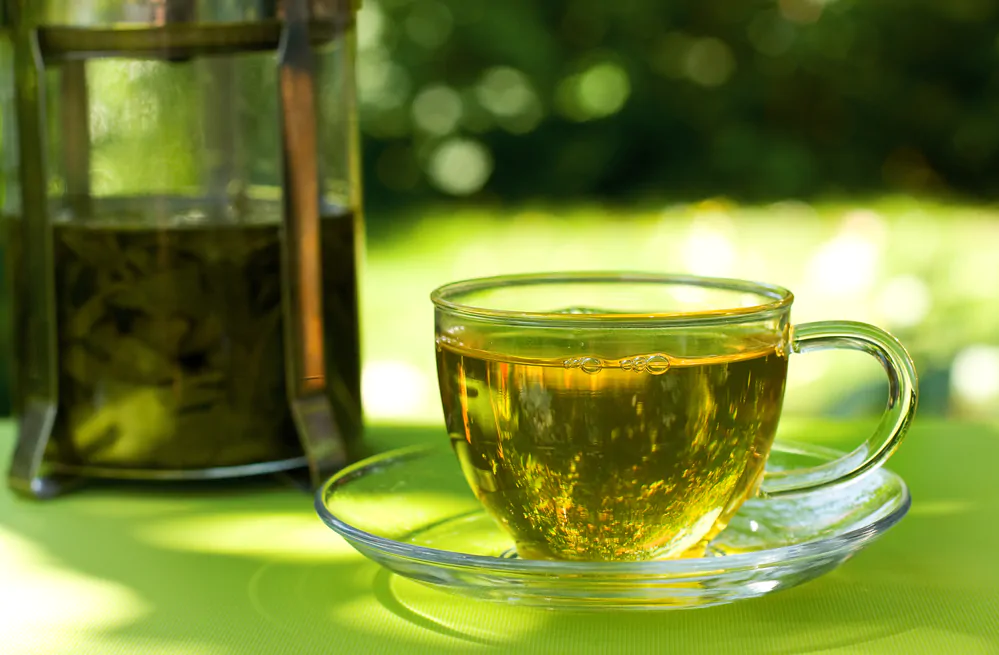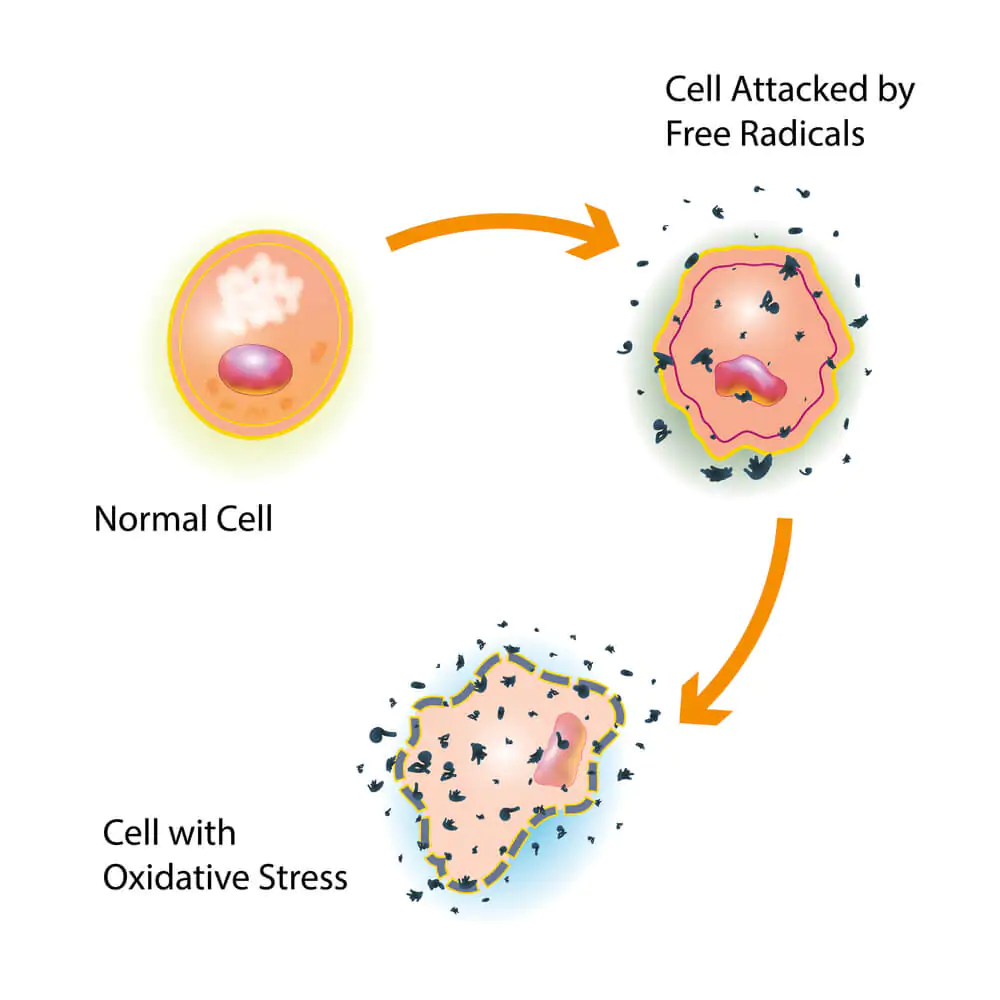Asking yourself, “What is EGCG in green tea?” EGCG stands for epigallocatechin-3-gallate, a phenol and antioxidant that helps reduce inflammation.

Green tea is a caffeinated drink that has many health benefits. One of the most beneficial things in green tea is EGCG, which is a plant compound. This article will break down what this compound is and how it contributes to the benefits of green tea.
If you want to find out more about green tea and which brand to buy, read our article on the best green tea brand available.
What Is EGCG In Green Tea?
EGCG stands for epigallocatechin-3-gallate. This substance is a catechin, a natural phenol and antioxidant present in the flavonoids of plants. It develops during the metabolization in plants, giving plants flavor and scents.
This unique plant compound contains the possibilities of reducing inflammation, aiding weight loss, and preventing diseases. Overall, EGCG is a healthy and helpful compound that can help your body in normal functions and contribute to the prevention of many health conditions.
5 Benefits of EGCG
EGCG is full of antioxidants that work to prevent cell damage and boost your body’s functions. The catechin can reduce the free radicals in the body. Reducing free radicals stops cells and molecules from taking damage. This supply of antioxidants makes green tea a possible way to prevent cancers and avoid signs of aging.
1. Antioxidants
Antioxidants protect your cells from free radicals. Free radicals are the enemy, as they break down your cells, leading to cancers, chronic diseases like cardiovascular disease, and just aging in general. Free radicals occur whenever you eat food. But also if you’re around harmful substances like radiation or tobacco smoke.

But EGCG contains plenty of antioxidants which cancel out the free radicals targeting your cells. They neutralize the free radicals by supplying them with electrons, eliminating the neutrons that make up the free radicals.
You might also be interested in our explainer on can you put wheatgrass powder in your coffee.
2. Anti-inflammatory Properties
Stress or inflammation in the body can lead to health problems, such as chronic illnesses and heart problems. Overall, inflammation leads to discomfort, as well as severe conditions. So anything with anti-inflammatory properties is beneficial.
3. Better Heart Health
Green tea can reduce cholesterol, blood pressure, and plaque in your blood vessels, which improves heart health. The connection between EGCG specifically and heart health is still being studied, but there is a high chance the two are correlated.
4. Weight Loss
Green tea and weight loss are often associated. EGCG can improve your metabolism, helping you lose weight faster. This is especially true if you combine it with the caffeine in green tea.
However, this seems to only be true for some individuals and not all.

Prefer coffee? No problem. Check out our article on coffee vs tea for weight loss.
5. Improved Brain Functions
Who doesn’t want a healthier brain? EGCG can help improve brain functions which improve energy, focus, and mental flexibility. EGCG can support brain cells and prevent diseases like Alzheimer’s.
Other Foods That Contain EGCG
If you’re interested in incorporating more EGCG into your diet, you can also consume the foods listed below in addition to your regular green tea. You’ll notice all of these foods are known for their health benefits and their high presence of antioxidants, partly thanks to EGCG:
- White tea
- Oolong tea
- Black teas
- Cranberries
- Strawberries
- Blackberries
- Kiwis
- Cherries
- Pears
- Peaches
- Apples
- Avocados
- Pecans
- Pistachios
- Hazelnuts
The berries, in particular, tend to be very high in EGCG, and they can help with stomach discomfort or signs of aging, but don’t expect any change overnight.
Frequently Asked Questions
Below are frequently asked questions about EGCG.
Are There Any Downsides To Consuming EGCG?
EGCG does come with some risks. In some people, too much EGCG can result in liver and kidney failure, low blood sugar, dizziness, or chronic anemia.
But these side effects typically only arise in people taking EGCG supplements in large amounts. The moderate amount of EGCG present in green tea is almost always safe for anyone to consume. Just don’t drink too much green tea!
Is There EGCG In Coffee?
Yes! Coffee also contains levels of EGCG! But coffee doesn’t have nearly as much EGCG as green tea does. Green tea contains roughly 50-100 milligrams per cup, while coffee usually contains between 20 and 50 milligrams of EGCG.
But if you prefer coffee over tea, you can feel good knowing you are still consuming some of those antioxidants and beneficial compounds. But maybe eat some berries too!
